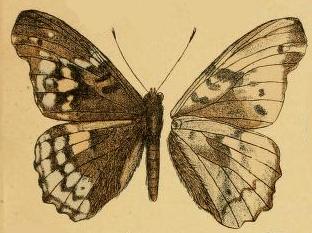
The Sumatran water shrew is a red-toothed shrew found only in the Padang highlands of western Sumatra, Indonesia. Its natural habitats are streams in montane forests. The species is only known from a holotype, which is damaged, and was previously listed as critically endangered by IUCN. It is believed to be severely threatened by habitat loss.

Nepenthes sumatrana is a tropical pitcher plant endemic to the Indonesian island of Sumatra, after which it is named.

Nepenthes longifolia is a tropical pitcher plant endemic to Sumatra, where it grows at elevations of between 300 and 1100 m above sea level. The specific epithet longifolia, formed from the Latin words longus (long) and folius (leaf), refers to the exceptionally large leaves of this species.

Nepenthes beccariana is a tropical pitcher plant. The species was described in 1908 by John Muirhead Macfarlane based on a specimen collected from the island of Nias, which lies off the western coast of Sumatra. It appears to be closely related to both N. longifolia and N. sumatrana, and the former is possibly a heterotypic synonym of this taxon.

The hairy-nosed otter is a semiaquatic mammal endemic to Southeast Asia and one of the rarest and least known otter species. It is threatened by loss of natural resources and poaching.

The Asiatic water shrews are the members of the genus Chimarrogale. They are mammals in the subfamily Soricinae of the family Soricidae. The genus contains the following species:

The black-naped tern is an oceanic tern mostly found in tropical and subtropical areas of the Pacific and Indian Oceans. It is rarely found inland.
Octomeles is a monotypic genus of plant in family Tetramelaceae. The sole species is Octomeles sumatrana, sometimes written O. sumatranum.

Phalaenopsis sumatrana is a species of orchid endemic to peninsular Thailand, Vietnam and southern Sumatra.

Equatorial spitting cobra also called the black spitting cobra, Malayan spitting cobra, golden spitting cobra, or Sumatran spitting cobra, is a species of spitting cobra found in Southeast Asia.

Herona sumatrana is a species of butterfly in the family Nymphalidae. It is found in South-East Asia.
Rauvolfia sumatrana grows as a tree up to 27 metres (90 ft) tall, with a trunk diameter of up to 43 centimetres (17 in). The bark is grey, yellowish grey, greenish yellow or brown. Inflorescences bear up to 35 or more flowers. The flowers feature a white corolla. Fruits are bluish black or purplish black when ripe, round, up to 2.1 cm (1 in) in diameter. The plant is found in a variety of habitats, mostly lowland. R. sumatrana is native to Burma, Thailand, Malaysia, Indonesia and the Philippines.
Diospyros sumatrana is a tree in the Ebenaceae family. It grows up to 30 metres (100 ft) tall. Inflorescences bear up to three flowers. The fruits are ellipsoid or oblong, up to 2.5 cm (1 in) long. The tree is named for Sumatra. Habitat is lowland mixed dipterocarp forests. D. sumatrana is found from Indochina to Malesia.
Zorilispe is a genus of beetles in the family Cerambycidae, containing the following species:
Zorilispe flavoapicalis is a species of beetle in the family Cerambycidae. It was described by Breuning in 1939. It is known from the Democratic Republic of Congo.
Zorilispe seriepunctata is a species of beetle in the family Cerambycidae. It was described by Breuning in 1939. It is known from Borneo, Laos and Malaysia.
Zorilispe spinipennis is a species of beetle in the family Cerambycidae. It was described by Breuning in 1939. It is known from Java.
Zorilispe tonkinensis is a species of beetle in the family Cerambycidae. It was described by Breuning in 1956. It is known from Vietnam.
Zorilispe acutipennis is a species of beetle in the family Cerambycidae. It was described by Pascoe in 1865. It is known from the Celebes Islands.
Zorilispe fulvisparsa is a species of beetle in the family Cerambycidae. It was described by Pascoe in 1865. It is known from Malaysia.











